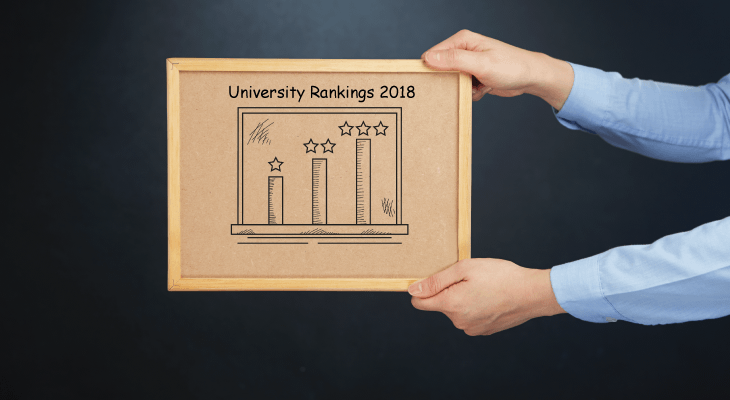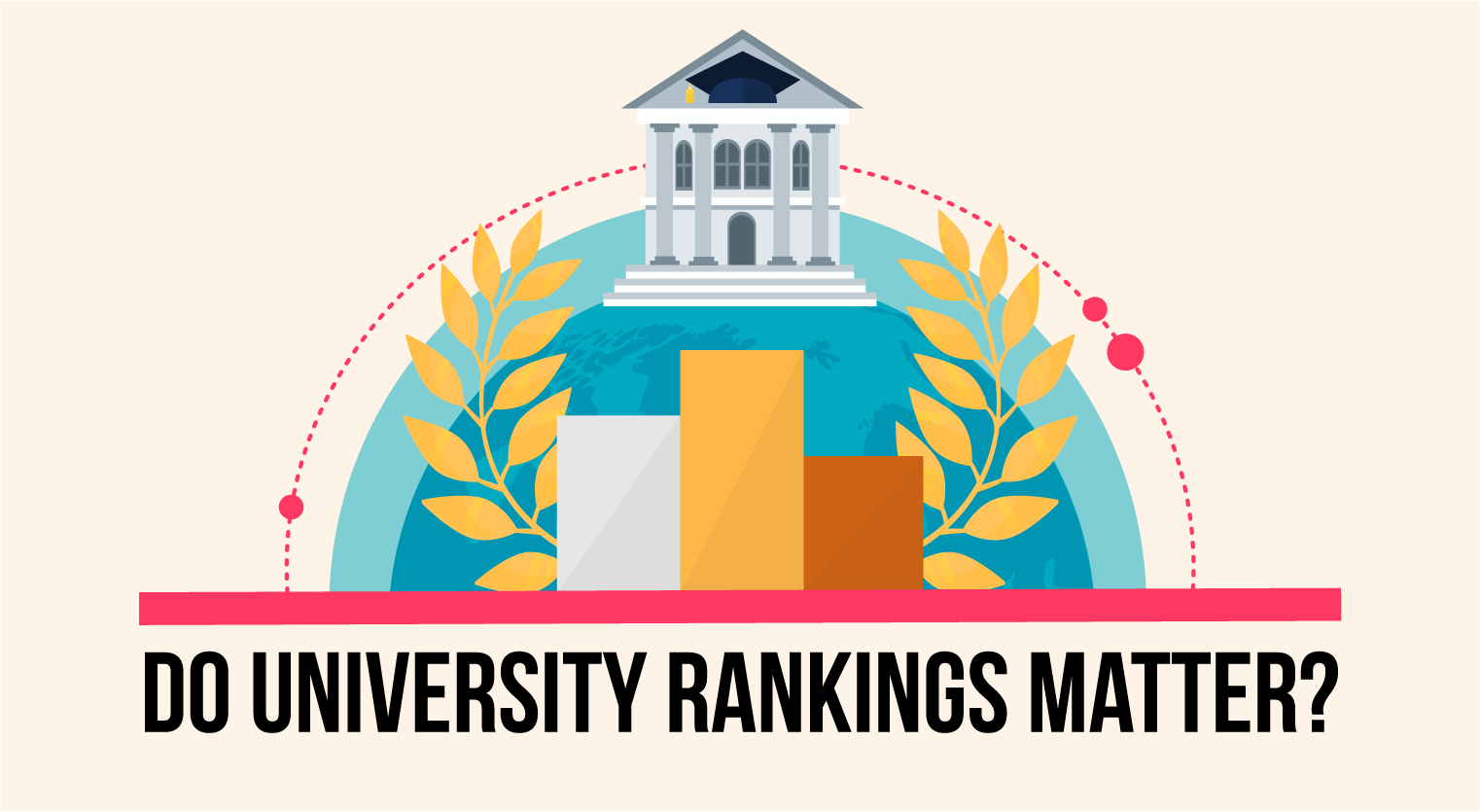Is Your Future Over If You Don’t Attend a Top University?
With all the hype surrounding university rankings, you might be pressured to squeeze yourself into the world’s best universities. We’ve got 5 reasons why that may not be the best idea.
Updated 12 May 2019

As you figure out your next step post-SPM, you might find yourself mulling over university rankings and carefully calculating your chances of getting into the world’s most esteemed institutions.
We hate to be the bearer of bad news, but the fact is that not all of us are Harvard or Oxbridge material. But is it truly the end of the line for you if you don’t get into one of these top universities?
In this article, we explore the hype around university rankings and contemplate if the consequences of not attending the world’s best universities are really as crippling as you think.
#1. Attending a top university could kill your dreams
 In his book David and Goliath, notable author Malcolm Gladwell suggests that attending a top university may cause someone to experience the “little fish in a big pond” syndrome, which is when you consider yourself insignificant as compared to your more successful peers.
In his book David and Goliath, notable author Malcolm Gladwell suggests that attending a top university may cause someone to experience the “little fish in a big pond” syndrome, which is when you consider yourself insignificant as compared to your more successful peers.
As top universities are highly selective with their students, you may find yourself overwhelmed as you compete with the best students around the globe. Consequently, those who are not able to match the success of their classmates may lose confidence and experience a lack of motivation and morale. This could eventually lead to switching degrees or worse, dropping out, despite the fact that they could still be among the top percentile of students in the country.
Although this may not apply to everyone, there is an argument to be made to choosing an average university where you can excel at instead of bouncing at the bottom at a top ranking university.

#2. University rankings don’t tell you the full story
 Each year, we are bombarded by the results of various university rankings, be it international (e.g. QS World University Rankings, Times Higher Education World University Rankings) or local (e.g. SETARA, MyQUEST). Although there are merits to referring to these league tables, it’s wise to also note the shortcomings of university rankings.
Each year, we are bombarded by the results of various university rankings, be it international (e.g. QS World University Rankings, Times Higher Education World University Rankings) or local (e.g. SETARA, MyQUEST). Although there are merits to referring to these league tables, it’s wise to also note the shortcomings of university rankings.
For starters, many international university rankings value traditional universities that conduct large volumes of scientific research. This puts universities that focus on arts and humanities at a disadvantage, not to mention younger universities too since they may emphasise on employability and market-readiness of their graduates.
Ratings may also be manipulated. Some university rankings rely heavily on reputation surveys, which are methodologically flawed and skewed towards certain universities.
Additionally, there are other more delicate elements that may inspire your experience at university, such as what you learn beyond the classroom, finding a network of people who share the same passions as you do, a vibrant campus environment and an exciting array of activities — all of which are almost never reflected in university rankings.
Apply for university with EduAdvisor
Secure scholarships and more when you apply to any of our 100+ partner universities.
Start now#3. Employers look for various qualities in a potential employee
 It is no secret that top companies love to hire from top universities. In fact, the top 20 schools that Google hires from are all ranked top 100 in the world.
It is no secret that top companies love to hire from top universities. In fact, the top 20 schools that Google hires from are all ranked top 100 in the world.
But just because you’re not graduating from these universities, doesn’t mean you’re doomed to your parent’s guest room, living off Maggi cup noodles for the rest of your life.
There are a wealth of characteristics that employers in Malaysia look for in a potential employee. In fact, many employers cite bad character and poor command of the English language as some of the top reasons why fresh graduates remain unemployed.
With over 200,000 students graduating every year, employers are looking beyond your academic qualifications and alma mater as the deciding factor, taking into consideration other factors such as leadership qualities, multitasking abilities and communication skills.
#4. Attending the world’s best university is not an instant ticket to happiness
 A 2013 survey by Pew Research Center in the United States found that students who attended American private colleges (many of which are Ivy League) attained roughly the same life satisfaction as those who graduated from public colleges.
A 2013 survey by Pew Research Center in the United States found that students who attended American private colleges (many of which are Ivy League) attained roughly the same life satisfaction as those who graduated from public colleges.
According to the study, the respondents ended up being equally satisfied with their careers and personal lives whether or not they graduated from an elite institution of higher learning. However, it was found that individuals who did not go on to obtain a tertiary education lagged significantly behind their counterparts who earned any type of college degree at all, showing that it is still worthwhile to get that scroll.
In fact, a person’s life satisfaction is most affected by factors such as the economy, an accessible and wholesome education system as well as the way a person thinks and relates to the environment around them. Therefore, while studying at a top university promises esteem and prestige, there are many other important factors that impact your success in life.

#5. Your university experience is what you make of it
 There is no denying that an education at a world-class university will provide you with an unprecedented learning experience. For starters, these institutions have state-of-the-art facilities to revolutionise learning and provide you with practical experience, employ top-notch teaching staff and prioritise small class sizes so lecturers are more accessible to students.
There is no denying that an education at a world-class university will provide you with an unprecedented learning experience. For starters, these institutions have state-of-the-art facilities to revolutionise learning and provide you with practical experience, employ top-notch teaching staff and prioritise small class sizes so lecturers are more accessible to students.
But your university experience isn’t over just because you cannot make the grades or afford to fork out thousands of ringgit to study at a premier university overseas.
In fact, what’s more important to remember is that your university experience and the trajectory of your future is what you make of it. No matter which university you attend, there will be plenty of opportunities for you to get involved in activities (if nothing interests you, you can always start your own club!), expose yourself to a vibrant campus culture and take bold steps to carve your own destiny. All you need is the right perspective and a positive mindset.
While universities play an important role in moulding you for the workforce, your undergraduate experience will be largely shaped by your own motivation, hard work and good character. Fantastic facilities and world-class lecturers will ultimately go to waste if you aren’t willing to put in the effort to create a wholesome and fruitful learning experience for yourself. So while we urge you to consider your university choices thoroughly, know that your future lies in your capable hands!






